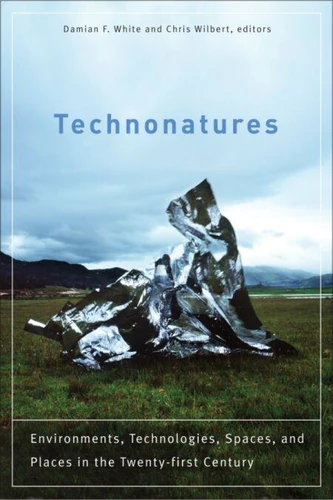Technonatures. Environments, Technologies, Spaces, and Places in the Twenty - first Century
Par : ,Formats :
Disponible dans votre compte client Decitre ou Furet du Nord dès validation de votre commande. Le format ePub est :
- Compatible avec une lecture sur My Vivlio (smartphone, tablette, ordinateur)
- Compatible avec une lecture sur liseuses Vivlio
- Pour les liseuses autres que Vivlio, vous devez utiliser le logiciel Adobe Digital Edition. Non compatible avec la lecture sur les liseuses Kindle, Remarkable et Sony
 , qui est-ce ?
, qui est-ce ?Notre partenaire de plateforme de lecture numérique où vous retrouverez l'ensemble de vos ebooks gratuitement
Pour en savoir plus sur nos ebooks, consultez notre aide en ligne ici
- Nombre de pages282
- FormatePub
- ISBN978-1-55458-820-6
- EAN9781554588206
- Date de parution05/04/2010
- Protection num.Digital Watermarking
- Taille2 Mo
- Infos supplémentairesepub
- ÉditeurWilfrid Laurier University Press
Résumé
Environmentalism and social sciences appear to be in a period of disorientation and perhaps transition. In this innovative collection, leading international thinkers explore the notion that one explanation for the current malaise of the "politics of ecology" is that we increasingly find ourselves negotiating "technonatural" space/times. International contributors map the political ecologies of our technonatural present and indicate possible paths for technonatural futures.
The term "technonatures" is in debt to a long line of environmental cultural theory from Raymond Williams onwards, problematizing the idea that a politics of the environment can be usefully grounded in terms of the rhetoric of defending the pure, the authentic, or an idealized past solely in terms of the ecological or the natural. In using the term "technonatures" as an organizing myth and metaphor for thinking about the politics of nature in contemporary times, this collection seeks to explore one increasingly pronounced dimension of the social natures discussion.
Technonatures highlights a growing range of voices considering the claim that we are not only inhabiting diverse social natures but that within such natures our knowledge of our worlds is ever more technologically mediated, produced, enacted, and contested.
The term "technonatures" is in debt to a long line of environmental cultural theory from Raymond Williams onwards, problematizing the idea that a politics of the environment can be usefully grounded in terms of the rhetoric of defending the pure, the authentic, or an idealized past solely in terms of the ecological or the natural. In using the term "technonatures" as an organizing myth and metaphor for thinking about the politics of nature in contemporary times, this collection seeks to explore one increasingly pronounced dimension of the social natures discussion.
Technonatures highlights a growing range of voices considering the claim that we are not only inhabiting diverse social natures but that within such natures our knowledge of our worlds is ever more technologically mediated, produced, enacted, and contested.
Environmentalism and social sciences appear to be in a period of disorientation and perhaps transition. In this innovative collection, leading international thinkers explore the notion that one explanation for the current malaise of the "politics of ecology" is that we increasingly find ourselves negotiating "technonatural" space/times. International contributors map the political ecologies of our technonatural present and indicate possible paths for technonatural futures.
The term "technonatures" is in debt to a long line of environmental cultural theory from Raymond Williams onwards, problematizing the idea that a politics of the environment can be usefully grounded in terms of the rhetoric of defending the pure, the authentic, or an idealized past solely in terms of the ecological or the natural. In using the term "technonatures" as an organizing myth and metaphor for thinking about the politics of nature in contemporary times, this collection seeks to explore one increasingly pronounced dimension of the social natures discussion.
Technonatures highlights a growing range of voices considering the claim that we are not only inhabiting diverse social natures but that within such natures our knowledge of our worlds is ever more technologically mediated, produced, enacted, and contested.
The term "technonatures" is in debt to a long line of environmental cultural theory from Raymond Williams onwards, problematizing the idea that a politics of the environment can be usefully grounded in terms of the rhetoric of defending the pure, the authentic, or an idealized past solely in terms of the ecological or the natural. In using the term "technonatures" as an organizing myth and metaphor for thinking about the politics of nature in contemporary times, this collection seeks to explore one increasingly pronounced dimension of the social natures discussion.
Technonatures highlights a growing range of voices considering the claim that we are not only inhabiting diverse social natures but that within such natures our knowledge of our worlds is ever more technologically mediated, produced, enacted, and contested.



